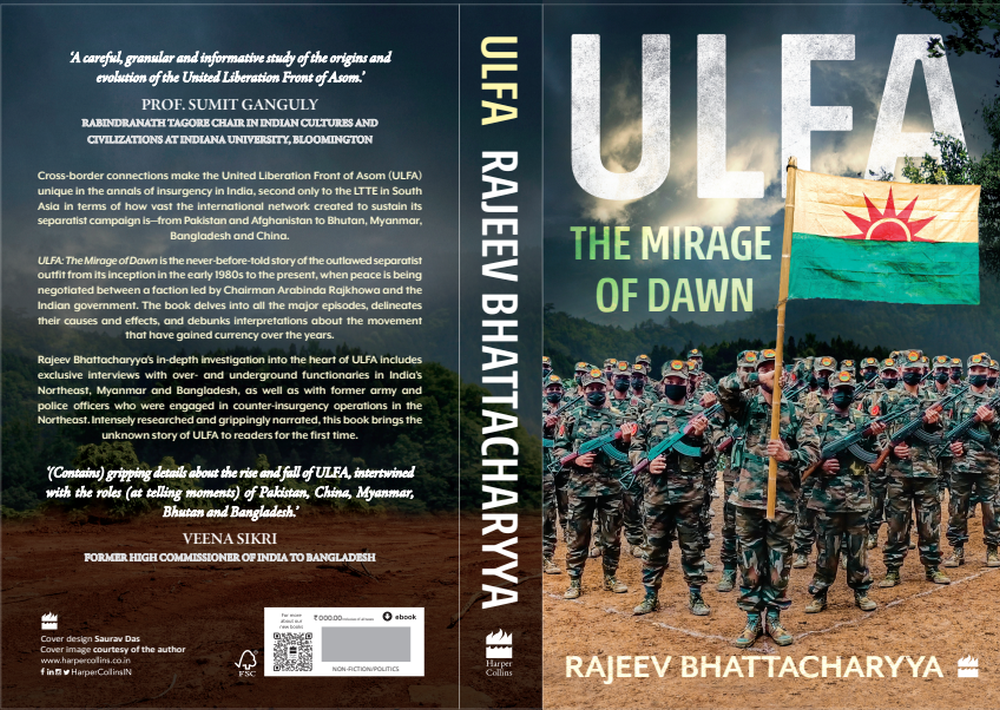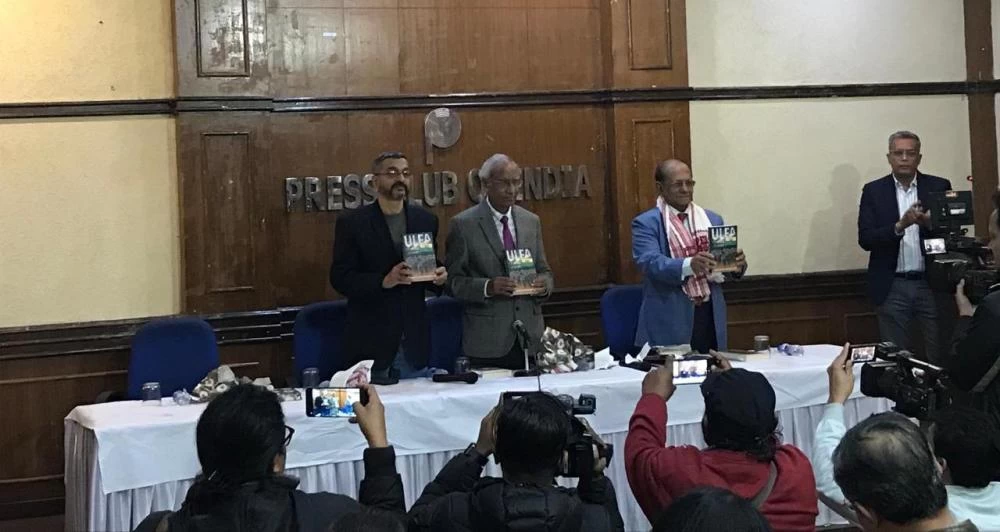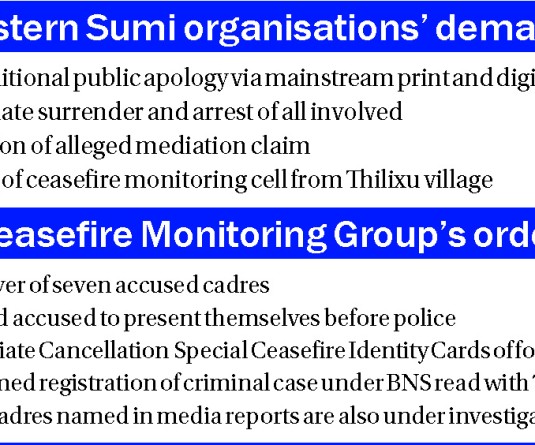‘ULFA: The Mirage of Dawn’ by Rajeev Bhattacharyya was launched at Press Club of India in New Delhi on February 10.

New Delhi, February 10 (MExN): Published by HarperCollins India, ‘ULFA: The Mirage of Dawn’ by Rajeev Bhattacharyya was launched at Press Club of India in New Delhi on February 10. An update received here stated that during the book launch event, the panelists were former ambassador to Myanmar Rajiv Bhatia and Maj Gen (Retd) Dipankar Banerjee, who was also a consultant to the UN. The event was moderated by Gaurav Choudhury, CEO of Earshot DigiMedia.
 ‘ULFA: The Mirage of Dawn’ “is the untold story of the outlawed separatist outfit, the United Liberation Front of Asom (ULFA), from its inception in the early 1980s in the backdrop of the historic Assam Movement, to the present when a peace process is on between a faction led by its chairman Arabinda Rajkhowa and the government. The account delves into all major episodes, delineates their causes and effects and debunks interpretations about the movement that have gained currency over the years.”
‘ULFA: The Mirage of Dawn’ “is the untold story of the outlawed separatist outfit, the United Liberation Front of Asom (ULFA), from its inception in the early 1980s in the backdrop of the historic Assam Movement, to the present when a peace process is on between a faction led by its chairman Arabinda Rajkhowa and the government. The account delves into all major episodes, delineates their causes and effects and debunks interpretations about the movement that have gained currency over the years.”
The author, in a press release made available to the media houses on Saturday with as excerpts from the book in a summarised version, states that the Bhutan King Jigme Sinye Wangchuk visited the camps of ULFA and NDFB before Operation All Clear was launched in 2003 that led to the elimination of all rebel camps in the country. He writes, “The first visit was in 1999 when the king accompanied by senior army officers visited ULFA’s central and general headquarters in Samdrup Jhonkar to convince the outfit to vacate the country. The second visit was in mid-2002 with the same objective but the king also proposed financial assistance to ULFA for vacating the country to another location. The king visited a camp of the National Democratic Front of Bodoland (NDFB) at Kalikhola in 2003 with the same objective of persuading the outfit to dismantle the camps and vacate the country.”
In another portion, he stated that ULFA (Independent) supremo Paresh Baruah was imprisoned for over two months in Bangladesh by the country’s intelligence agency DGFI. “The episode unfolded in mid-1993 after a consignment of sophisticated weapons sourced from Romania in a ship was confiscated at Chittagong by the police. Paresh along with another senior functionary was put behind bars at DGFI’s custody in the Mirpur military cantonment after they approached the intelligence agency to release the weapons. The duo was released only after Paresh sat on a hunger strike inside the cell that prompted the agency to quiz them and then release them unconditionally.” Chief of the anti-talks faction of National Democratic Front of Bodoland (NDFB) Ranjan Daimary who is currently in jail in Assam for his role in the serial blasts in the state in 2008 was also interned at a police station for three days in Dhaka in 2000 after being apprehended at the airport. He was set free without being prosecuted, he added.
The author gives an account of “a former director general of Assam police hired a surrendered ULFA (SULFA) activist to assassinate editor Anil Mazumdar in Guwahati on 24 March 2009.” After two weeks, the police chief hired another SULFA activist hailing from Nagaon to kill the assassin to eliminate all evidence. The police chief has formed a group of loyal SULFA activists to engage in business in the Mumbai dockyard and also to garner government contracts and grab land in Assam, it claimed. “The CID was unable to make any headway in Anil Mazumdar’s case which prompted Gauhati High Court to hand over the case to the CBI following a petition by the victim’s wife. The CBI identified a SULFA activist Bijoy Phukan as the murderer of Mazumdar,” it stated.
According to the book excerpts, “Senior CPI (Maoist) functionary and military strategist Kishenji met ULFA chief of staff Paresh Baruah to firm up a deal for receiving weapons. Two consignments consisting of assault rifles, pistols and explosives were delivered by ULFA to CPI (Maoist) through routes crisscrossing West Bengal. The third consignment was seized at Bogra in Bangladesh before it could cross the border and the local media alleged that the ATTF from Tripura was involved in the operation.”
Bhattacharyya also writes that the first attempt was made at ULFA’s camp in Bangladesh’s Satcherri when an assassin was sent by Special Branch of Assam police to kill Baruah. However, he escaped from the camp before he could pull the trigger. The second attempt was made by a senior officer of Assam police who got in touch with a criminal syndicate in Bangladesh to gun down Baruah which failed.
“The same officer had also convinced an ULFA functionary turned mole named Munna Mishra to cross the border into Bangladesh and target Baruah. This attempt proved futile as well after Mishra was apprehended by the police in the neighbouring country after crossing the border. But he managed to return to India after a senior official from the Indian High Commission in Dhaka intervened to secure his release from police custody. The fourth attempt was in Dhaka when a boulder was hurled by an unknown person at Baruah at a crowded place in the car he was travelling. Baruah escaped unhurt although the windscreen of the vehicle was damaged,” the book excerpts stated.





